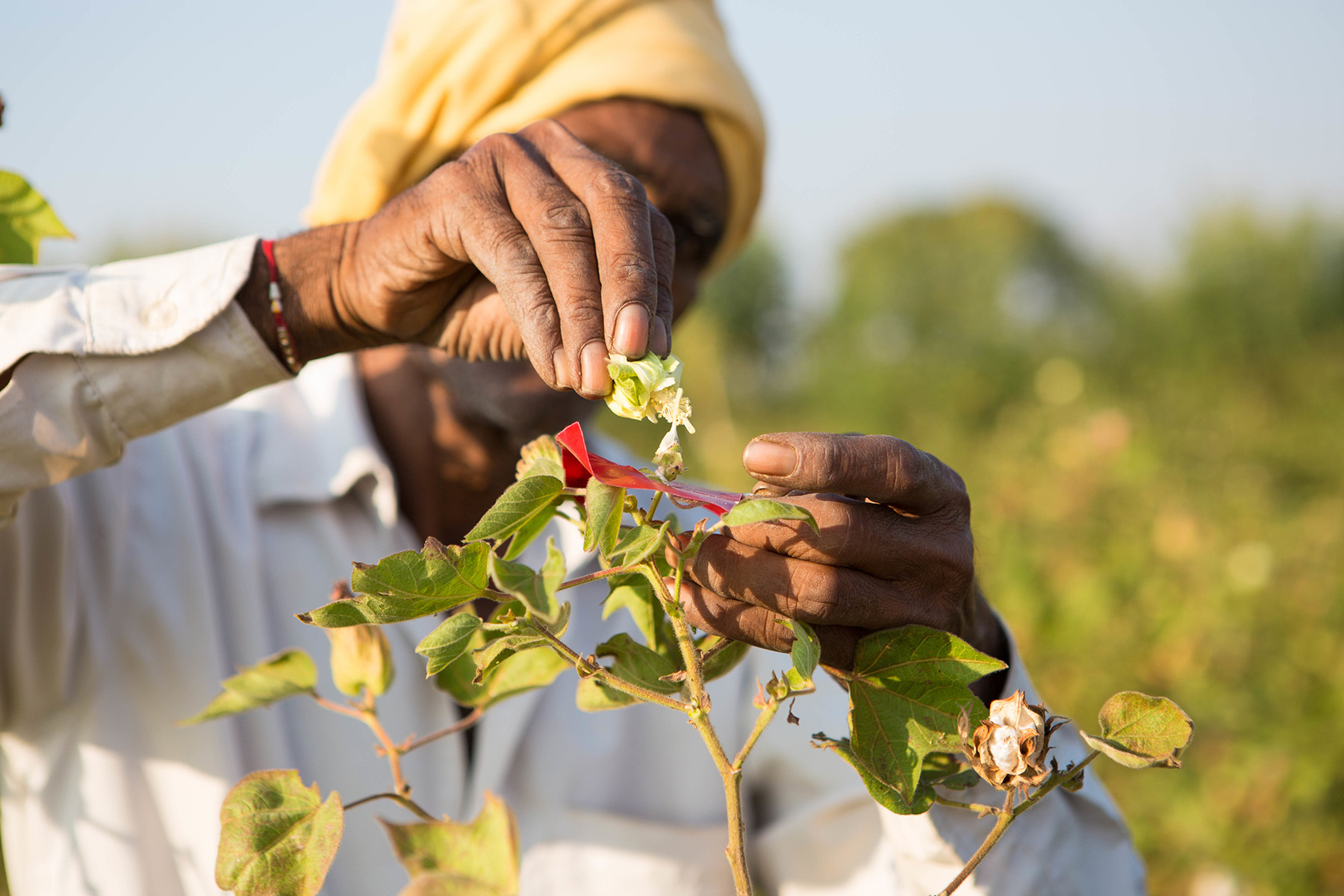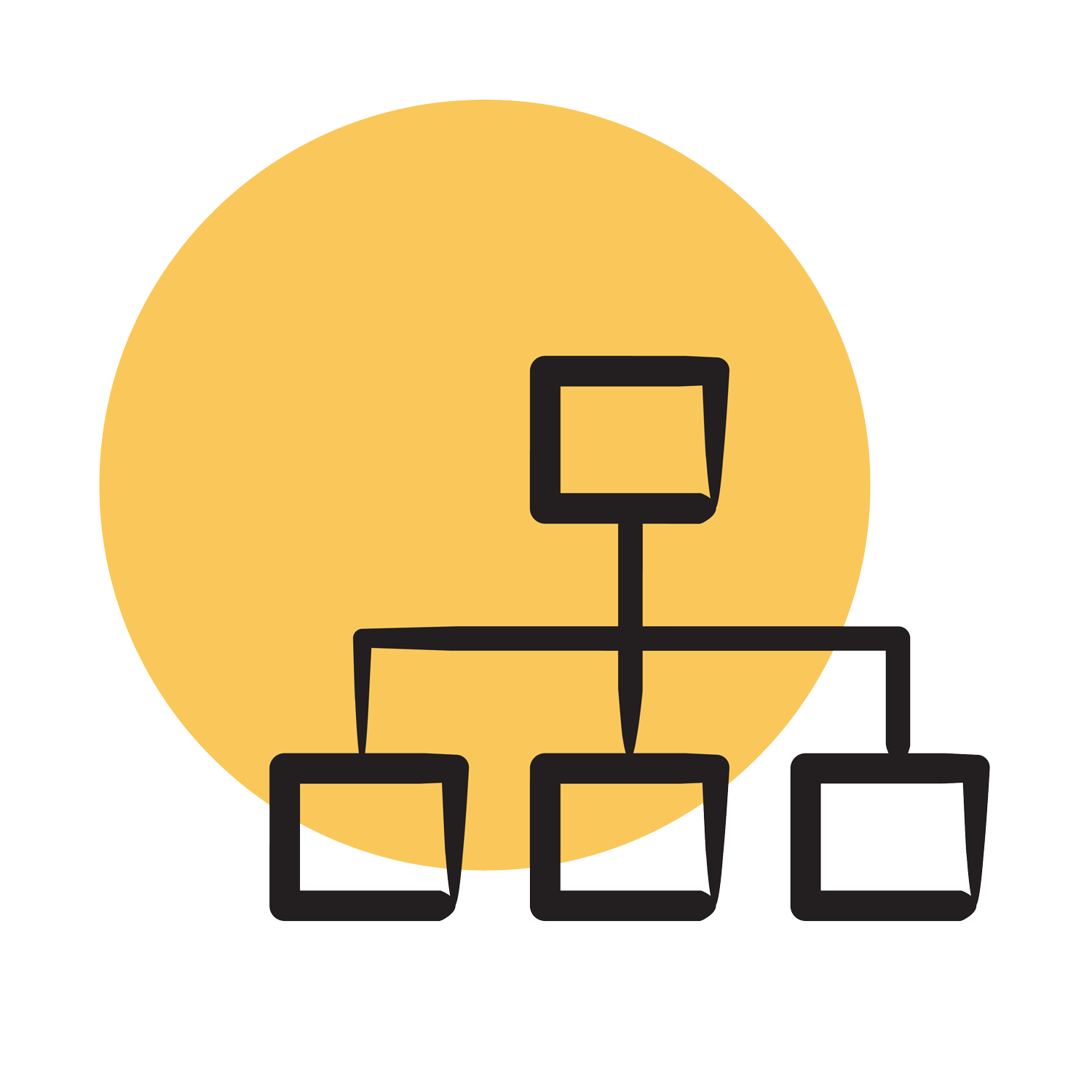New Crops



Social Challenge and Innovative Solution
Almost 40% of the world’s cotton is produced in developing countries by smallholder farmers with limited worker protection, education and gender equality. Less than 1% of global production is organic. Compared to conventional cotton, the benefits of organic cotton production is twofold: it helps protect the environment and and builds resilience of the farming communities. It is grown without harmful chemicals and, using non-genetically modified (GM) seeds. This helps protect soil quality, biodiversity and water supply, and in turn improves the health and safety of farming communities.
Despite these benefits organic cotton production has a number of challenges. The biggest challenge is the inequitable distribution of value within the supply chain. Problems also arise regarding access to good quality non-GM seed, supply chain integrity and connecting market demand with supply.
Part of the solution lies in training farmers in organic cotton practices, supporting their journey of conversion to organic farming practices, and connecting them with market partners who are willing to pay a fair price. Another solution is working on holistic supply chain models with brands so as to increase demand for the organic cotton.
CottonConnect’s solution
In 2014/2015, the social enterprise CottonConnect launched the Organic Cotton Farmer Training Programme (OCFTP) in partnership with C&A Foundation to support smallholder cotton farmers in adopting organic cotton production practices over a three-year conversion process. The aim was to use the lessons learned from this process to scale up production of organic cotton globally.
The programme deepens farmers’ knowledge on organic cotton cultivation practices and explores innovative models for farmers to connect with each other and to the market. It supports farmer empowerment and independence through a Farmer Business School and ensures that graduating farmers stick to organic practices. The programme also supports the integrity of the organic crop across the supply chain. As of last year, CottonConnect also brings together the organic cotton farmers to create farmer producer companies, which enable them reduce the number of middlemen in the supply chain, and get a better price for their cotton.
While CottonConnect’s headquarters are in the UK, it has a subsidiary in India and works with a large team on the ground. The programme consists of six projects in the Indian states of Gujarat, Maharashtra, Madhya Pradesh and Rajasthan.
Business model
CottonConnect is already a self-sustaining social enterprise with key funders including the Better Cotton Initiative – of which CottonConnect is an implementer – or brands and retailers with an interest in developing sustainable cotton supply chains.
CottonConnect also develops other products, such as their traceability software “TraceBale”, which provides a full view on the cotton supply chain.
Key Social Impact Figures
May 2018
*compared to conventional cotton farmers
Investing for Impact
How it started
The global retailer C&A established CottonConnect in 2009. In 2014, the partnership, and subsequently the equity share, was “transferred” to C&A Foundation (now Laudes Foundation). The foundation has a global sustainable cotton programme, and CottonConnect is one of the partners they work with.
In addition to its support for the CottonConnect OCFTP as described, C&A Foundation also funds other CottonConnect programmes, including promoting organic cotton in other countries, such as China.
Support provided
On top of the equity share that C&A Foundation holds, the foundation has also provided a €6m grant over four years (since 2014) for the programme in India. The grant was given in tranches linked to the achievement of specific target outputs, which are laid out in CottonConnect’s end-of-year reports.
Governance

Governance
Management team and CEO support

Management team and CEO support
Impact Measurement
As of May 2018
| Outcome | Indicator | Target | Results |
| Enhanced farmer income | % increase in income from sale of cotton of programme farmers in comparison farmers who have not adopted organic farming | 5% increase | 29% increase |
| Reduction in cultivation costs | % reduction in cultivation costs for programme farmers in comparison farmers who have not adopted organic farming | 40% reduction | 44% reduction |
| Improved water efficiency for farmers | % farmer adoption of at least of the listed methods of water use efficiency (Rain Water Harvesting/ Mulching/ Green Manuring/ Installing drip or sprinkler units / composting) | 80% | 93% |
| Increased participation of women farmers | % women farmers who know to treat seed with one of the organic ingredients | 50% | 94% |
With the support of C&A Foundation, CottonConnect has a very thorough impact measurement system put in place. Each farmer in the programme has to report on specific indicators. CottonConnect also collects qualitative data through farmers’ stories.
As a result of the OCFTP, farmers have better working conditions and their children have improved access to education. Water efficiency methods (such as rainwater harvesting and furrow and drip irrigation) have helped farmers save money. Creating farmer producer companies also improves access to markets and finance, reducing dependence on credits. Farmers also benefitted from the availability of improved non-GM cotton seed.
What's Next?
C&A Foundation’s support will come to an end in 2019. So far, as the figures above show, the programme has been a success and the farmers in this programme will continue with their organic cotton journey. Organic farmers have had such a positive experience with organic methods that they are now teaching neighbouring farmers how to do the same.
More information
- Laudes Foundation (formerly C&A Foundation)
- CottonConnect
- Better Cotton Initiative

